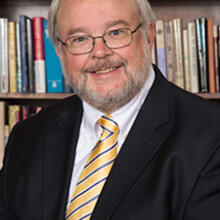The silence has been broken. I have often deplored lack of public discussion of U.S. poverty. Prodded by Pope Francis and the 50th anniversary of the War on Poverty, leaders are responding to the pope’s indictment of an “economy of exclusion and inequality.” With his words and example, Pope Francis has started conversations on the airways and the Web, in politics and our homes, about “people [who] find themselves excluded and marginalized: without work, without possibilities, without any means of escape.”
President Obama and Repre-sentative Paul Ryan, Republican of Wisconsin, responded by addressing too much poverty and too little mobility in our nation.
President Obama said, “The basic bargain at the heart of our economy has frayed.... The pope himself spoke about this. ‘How can it be that it is not a news item when an elderly homeless person dies of exposure, but it is news when the stock market loses two points?’ This increasing inequality...challenges the very essence of who we are as a people.”
Representative Ryan said, “What I love about the pope is he is triggering the exact kind of dialogue we ought to be having.”
Some discussion on teleprompters and talk shows is a rehash of old talking points or presumptuous comments on what the commentator thinks Pope Francis should have said, but much is informed, insightful and eloquent. The good news is that the silence has ended with agreement that the current situation—one of five children grows up poor in our rich nation—is intolerable. The bad news is that partisan polarization blocks effective action. There are unreal, unhelpful divisions between those who focus mostly on family factors as causes and remedies for poverty and those who look to economic forces as primary contributors and solutions. These partisan and ideological walls must come down. A child’s future is shaped by both the choices of the parents and the policies of government, by both the strength of the child’s family and the strength of the economy. These false alternatives, narrow agendas and ideological boundaries are bad policy and bad politics and are bad for poor people.
The social scientist Robert Putnam of Harvard University, author of Bowling Alone, warns that economic stagnation and family dysfunction are pushing more children into poverty. His research shows white working class families increasingly undermined by economic, social and moral pressures. Professor Putnam insists this is the “ultimate purple problem”—that is, the combination of red and blue—and that Catholic and evangelical communities have particular responsibilities to act because of where they are and who they serve.
The Catholic social tradition of thought and action offers alternatives to the paralyzed status quo. Our principles and experience point to the moral, political and policy imperative of both/and, making connections between family and economic factors, human life and dignity, rights and responsibilities, solidarity and subsidiarity, dignity of work and rights of workers, race and class, discrimination and dependency, personal and social responsibility. These are not slogans but nuanced guides to policy. They focus more on overcoming poverty than achieving equality, require policy participation of poor people themselves, support a genuine safety net and insist on decent work at decent wages for all who can work.
The U.S. bishops have offered a four-part framework: 1. The responsibilities of individuals and families to make wise choices, marry before having children, pursue education and work. 2. The supporting roles of community and religious groups (including unions and community organizations). 3. The necessary contributions of a growing economy and the market: decent jobs, wages and benefits. 4. The obligations of government to provide a genuine safety net, promote economic vitality and act when other institutions fail to protect human life, dignity and rights. In Washington, many embrace one of these priorities and neglect the others. The complexity of poverty requires that all these institutions work together to help the poor build better lives.
In addition to ethical principles and everyday experience, the Catholic community brings the leadership of Pope Francis and his moral criteria: “the greatness of a society is found in the way it treats those most in need, those who have nothing apart from their poverty.”








